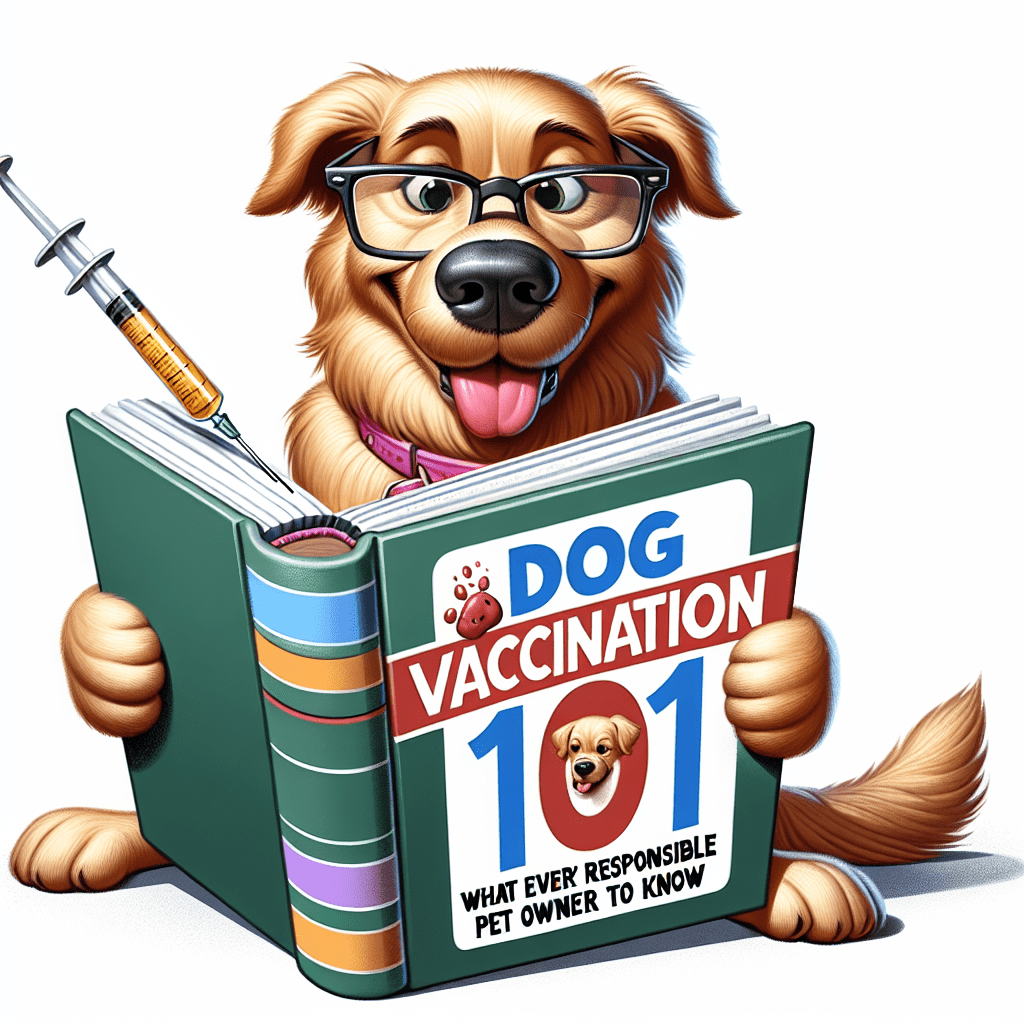Get your free Book Here

Dog Vaccination 101: What Every Responsible Pet Owner Needs to Know
As a passionate dog lover and seasoned trainer, I understand that keeping our furry friends healthy is our top priority. Dog vaccinations are vital in maintaining their health and preventing serious diseases. By taking the time to understand vaccination protocols, you’re ensuring a happy, vibrant life for your pup. Let’s dive into Dog Vaccination 101 and empower you with the knowledge to make the best choices for your beloved pet!
Understanding Dog Vaccinations
Vaccinations are a proactive measure that protects dogs against potentially fatal diseases. Core vaccines include:
- Rabies: A deadly virus that is preventable through vaccination. It’s legally required in many areas.
- Distemper: A viral disease that attacks the respiratory, gastrointestinal, and nervous systems.
- Parvovirus: A highly contagious virus affecting the gastrointestinal tract.
- Hepatitis (Adenovirus): It impacts the liver and can lead to severe complications.
Beyond these core vaccines, non-core vaccines can be valuable depending on your dog’s lifestyle and environment. For instance, if your dog mingles with other dogs frequently, Bordetella (kennel cough) might be recommended.
Always consult with your veterinarian regarding your dog’s specific vaccination needs based on breed, age, health status, and lifestyle. A tailored vaccination schedule ensures your pup receives the right protection at the right times.
Why Vaccinations Matter
Vaccination is not just about compliance; it’s about your dog’s well-being. Here are a few compelling reasons:
- Prevention of Disease: Vaccines save lives by protecting against harmful viruses and bacteria.
- Community Health: Vaccination in our pets helps create herd immunity, protecting those who cannot be vaccinated.
- Legal Compliance: Many regions require vaccinations, especially for rabies.
- Peace of Mind: Knowing your dog is vaccinated brings a sense of reassurance in your daily interactions with them.
You might be wondering about the potential side effects. While minor reactions like soreness at the injection site can occur, serious side effects are rare. The benefits of vaccination far outweigh the risks, and routine check-ups with your vet can help manage any concerns.
When and Where to Vaccinate
Your puppy’s vaccination journey begins as early as six to eight weeks old. Here’s a rough timeline for vaccinations:
- 6-8 Weeks: Start with core vaccines (Distemper, Parvovirus).
- 10-12 Weeks: Boosters for initial vaccines.
- 16 Weeks: Final puppy vaccinations; include rabies.
- Annually/Biennially: Maintain boosters as directed by your veterinarian.
Finding a reliable vet is essential. Search for local clinics, read reviews, and ask fellow dog owners for recommendations. It’s worth seeking a vet who understands that vaccination is part of a broader wellness strategy tailored specifically for your dog.
Pros and Cons of Dog Vaccination
Every responsible pet owner should weigh the advantages against the disadvantages of dog vaccination. Here’s a list of considerations:
Pros:
- Disease Prevention: Protects your dog from serious illnesses.
- Cost-Effective: Preventing disease is often cheaper than treating it.
- Community Protection: Lessens the risk of outbreaks.
- Travel Compatibility: Vaccinated dogs have fewer travel restrictions.
Cons:
- Potential Reactions: As mentioned, some dogs may experience minor side effects.
- Cost of Vaccination: Although cheaper than treatment, there’s an expense involved.
- Vaccine Hesitancy: Some owners are unsure about vaccine safety.
Understanding these pros and cons allows for an informed decision-making process. Engaging with your vet can provide clarity tailored to your unique situation.
Frequently Asked Questions (FAQs)
1. What if I missed my dog’s vaccination?
Don’t panic! Contact your veterinarian immediately to discuss rescheduling.
2. Can my dog get vaccinated if sick?
In most cases, it’s better to wait until your dog is healthy to ensure safety and efficacy.
3. Are there alternative vaccination schedules?
Yes, some vets provide alternatives; consult your veterinarian for personalized options.
4. Can older dogs get vaccines?
Yes, older dogs benefit from vaccinations, especially for core diseases.
5. How do I keep track of vaccinations?
Maintain a pet vaccination record and keep it updated after every visit to the vet.
6. Should my dog be vaccinated annually?
This depends on various factors, including the vaccine type and your dog’s lifestyle. Consult your vet for guidance tailored to your dog.
7. What if my dog is a rescue?
If you adopt a rescue dog, ensure to set up a vet check-up to evaluate their vaccination status.
Remember, every dog deserves protection from dangerous diseases, and maintaining a positive outlook will keep you and your pup ready for all the adventures life has to offer!
Instantly Access Your FREE Children’s Books Here!
Disclaimer: As an Amazon Associate, I earn from qualifying purchases. I may earn a commission from qualifying purchases as an affiliate. Please note that I only recommend products I believe will provide value to my readers.







